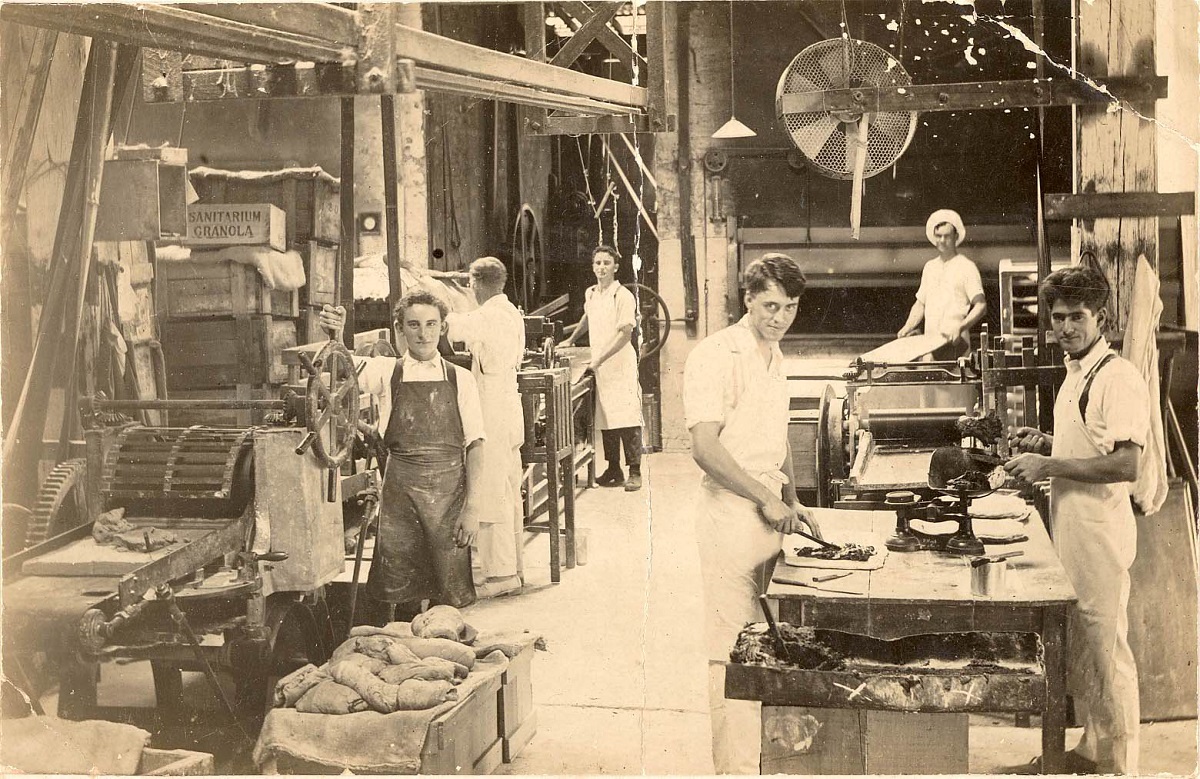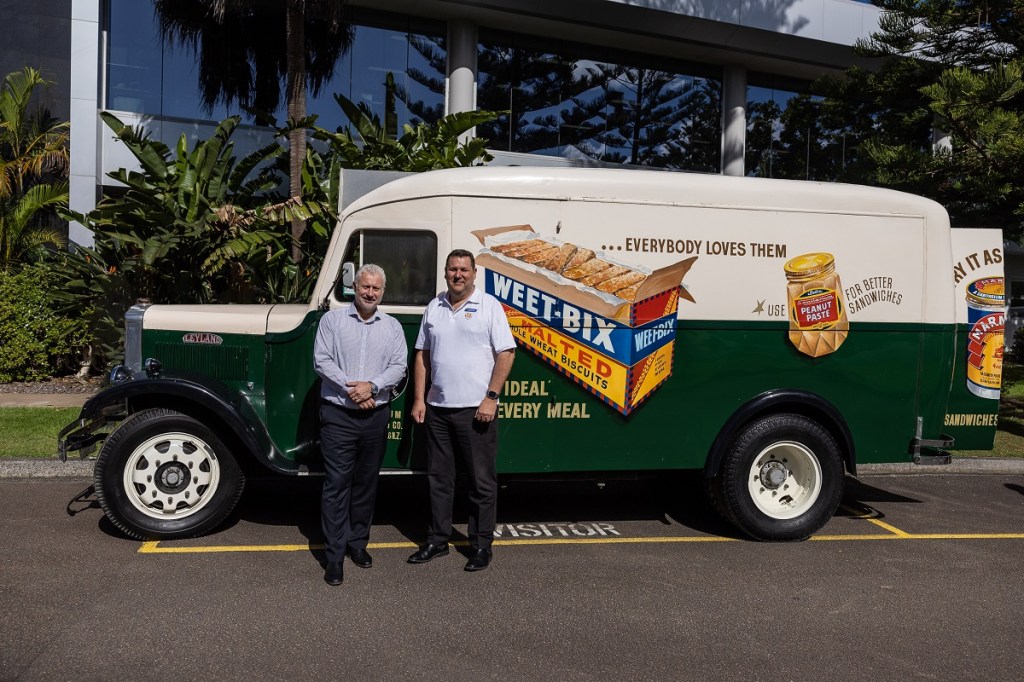The Australian-owned Sanitarium Health Food Company has celebrated its 125th anniversary by reaffirming its commitment to making a positive impact on the nation’s health.
Sanitarium was founded in 1898 in a neighbourhood bakery in Northcote, Melbourne, after a small group of Seventh-day Adventists migrated from Battle Creek, Michigan bringing foods made by Dr John Harvey Kellogg for patients at his health institute.
In January that year, Edward Halsey, who had trained with Dr Kellogg, commenced making the company’s first ready-to-eat cereals, including Granose wheat biscuits – a forerunner to Weet-Bix – and Sanitarium Peanut Butter.
Within a decade, Sanitarium had expanded to open health food cafes around Australia and had launched Australia’s first plant-based meat-alternative, Nuttose. When the fledgling food company made its first profits in 1906, it donated them to support health education in the South Pacific Islands.
Sanitarium was the first to introduce breakfast cereals, pioneered innovative soy foods and promoted plant-based eating long before it became popular.

Kevin Jackson, CEO, Sanitarium, said the company believes that healthier choices support the potential for every Australian to live a long and healthy life.
“Sanitarium was founded with the core purpose of helping Australians to eat well and live well. This purpose remains just as important today, particularly as families struggle with the growing impacts of lifestyle-related chronic diseases, food insecurity and cost-of-living pressures.
“That’s why we’re strengthening our commitment to make access to healthier choices easier for more Australians. We’ll do this through the affordable healthy foods we make, increasing our investment in health education, and by doing more to develop food and nutrition security for all,” he said.
Sanitarium’s portfolio includes Weet-Bix, So Good, and UP&GO. Its brands are found in two-thirds of households across the nation, with 90 per cent of its products carrying a four to five Health Star Rating.
The business has a passion for giving back to the community, and last year alone it donated more than 4.2 million serves of food to the community through a network of charity partners, headlined by Foodbank Australia.
Entering its 22nd year, Sanitarium’s support for breakfast programs in Australian primary schools is one of the company’s most significant food and nutrition security initiatives.
“Over the last two decades, Sanitarium has provided more than 20 million serves of Weet-Bix, So Good and Sanitarium spreads to help give Aussie kids the nutrition they need to learn and play throughout the school day,” said Jackson.
“We’re always ready to help Australians doing it tough, donating food to communities impacted by natural disasters, and providing ongoing support to food pantries who offer a lifeline to people in need.”
For 125 years, Sanitarium’s production of healthy foods has gone hand-in-hand with its investment in health education.
Jackson explains: “Our goal has always been to give all Australians access to the knowledge, resources, and skills they need to make healthier choices. In 1901 we opened Australia’s first health food cafes, which served food education and cooking classes alongside nutritious plant-based foods.
“We shifted into more modern forms of education in the late 1980s with the formation of our Nutrition Education Service which published health research and produced health and food education materials for the community. In the decade that followed, we launched the Weet-Bix Kids TRYathlon to lift physical activity rates among primary school aged children, with a nationwide event series held annually around Australia until 2020.”
Sanitarium is now one of the largest Australian-owned food companies, employing 1,200 people across six Australian sites and exporting products to almost 40 countries. Its head office is at Berkeley Vale on the Central Coast of NSW.
Jackson concludes: “In 1898, our founders set out to make a positive impact on the nation’s health. They were motivated by a great sense of purpose, underpinned by their desire to serve the community, and ultimately care for people. This same purpose continues to ignite the passion in our Sanitarium team today and we remain determined to support Australia in addressing the food-related health challenges of the 21st century.”
To stay up to date on the latest industry headlines, sign up to the C&I e-newsletter.

